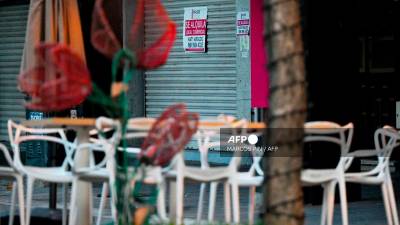GUAYAQUIL: The vibrant salsa-infused nightlife that once defined Ecuador’s largest city has fallen completely silent as bars, restaurants, and nightclubs shutter their doors to avoid cartel-linked violence.
Valeria Buendia, a 36-year-old teacher, recalled weekly visits to Panama Street with friends before the area became empty and dangerous after dark.
“I’m afraid of stray bullets,“ she said, listing now-closed venues like Central, Exflogia, and Nicanor that were once popular nightlife hotspots.
Ecuador has recorded over 5,200 homicides so far this year, making it the most dangerous country in South America according to government statistics.
More than 1,550 of those deaths occurred in Guayaquil, a commercial hub of about 2.8 million people that has become a major thoroughfare for the global cocaine trade.
Nightlife has migrated to luxurious suburban neighborhoods like Samborondon, where rifle-wielding guards protect wealthy patrons passing through metal detectors.
One nightclub owner who relocated from the city center stated bluntly that “it would be suicide to invest in Guayaquil” under current conditions.
Remaining bar owners face relentless extortion demands that gradually increase until businesses become unsustainable.
A former salsa club owner described how initial weekly demands of $50 escalated until he “couldn’t keep up” and eventually closed his venue in December 2024.
Locals report that most bars now pay $300 monthly protection money, with larger venues facing demands up to $5,000, often transferred through banking systems.
Ecuador registered 9,422 formal extortion complaints in the first half of 2025, with about one third occurring in Guayaquil, though the actual number is likely higher due to fear of reporting.
A hospitality businessman with 25 years of experience recalled receiving extortion messages mentioning his family in 2021, prompting him to close his establishment without reporting to authorities.
Those refusing to pay face violent consequences, including explosive devices thrown at restaurants and armed attacks in nightclubs that have killed multiple patrons.
Ernesto Vasquez of the city’s nightclub association estimates that 50% of hundreds of bars in central and southern Guayaquil have permanently closed.
Drug gangs continue growing more emboldened despite President Daniel Noboa’s military confrontation strategy, transforming once-bustling entertainment districts into ghost towns after dark. – AFP
